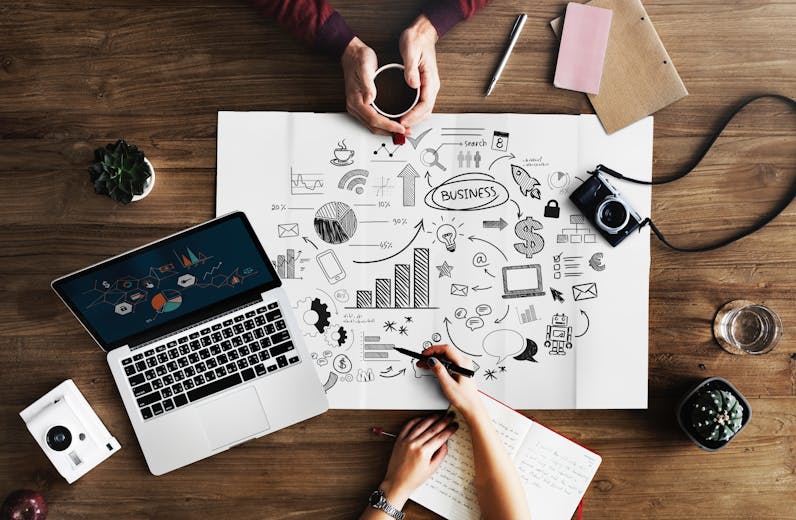Find Freedom and Focus in Living with Less.
Minimalism is intentionally choosing to live with only the things you truly need and love, clearing away excess to make room for what matters most.
Discover Simplicity In a world constantly urging us to acquire more, minimalism offers a path to escape consumer pressure and reclaim control. It's about shifting focus from possessions to purpose, passion, and people.
By intentionally removing physical, mental, and digital clutter, minimalism reduces stress, frees up valuable time and financial resources, and allows for greater mental clarity.
Ultimately, living with less can lead to a richer, more meaningful life centered around experiences, relationships, and personal growth rather than the accumulation of stuff.

Decluttering Your Physical Space
Minimalism often begins with decluttering – letting go of items that don't serve a purpose or bring joy. This creates physical space and reduces the mental burden of managing excess possessions.

Intentional Consumption
Move beyond impulse buys. Minimalism encourages mindful purchasing – acquiring items based on genuine need or value, prioritizing quality over quantity, and considering the lifecycle of products.

Simplifying Your Schedule
Minimalism extends beyond physical items. It involves decluttering your time by saying 'no' to non-essential commitments, reducing busyness, and prioritizing activities that align with your values.

Digital Minimalism
Apply minimalist principles to your digital life. Reduce screen time, curate apps and notifications, unsubscribe from excess emails, and organize digital files to lessen distraction and overwhelm.

Focusing on Experiences
Minimalists often prioritize spending time and resources on experiences – travel, learning, relationships, hobbies – rather than accumulating material goods, leading to richer memories.

Mindfulness and Contentment
By reducing external distractions and focusing on essentials, minimalism fosters mindfulness and encourages gratitude for what you already have, leading to greater contentment.

The Freedom of Living Lightly
Minimalism is ultimately about freedom – freedom from clutter, debt, stress, and the constant desire for more. It liberates your time, energy, and finances to pursue what truly matters.
Living lightly allows for greater flexibility, deeper connections, and a more intentional, fulfilling life journey.
Starting a minimalist journey involves intentional steps. Here are some common strategies to begin simplifying your life.
Define Your 'Why'
- Clarify personal motivations
- What benefits do you seek?
- Less stress? More time? Savings?
- Helps maintain focus & commitment
- Your 'why' guides decisions
Start Small (One Area)
- Don't try to declutter everything at once
- Pick one manageable space (drawer, closet)
- Build momentum and confidence
- Reduces feelings of overwhelm
- Learn the process gradually
The One-In, One-Out Rule
- For every new item brought in...
- ...an existing item must leave
- Prevents re-accumulating clutter
- Encourages thoughtful purchases
- Maintains equilibrium
Question Every Item
- Does this add value/joy?
- Do I use this regularly?
- Is it essential? Could I borrow/rent?
- Challenge the need to keep things
- Be honest with yourself
Digitize Where Possible
- Scan important documents/photos
- Opt for digital bills/statements
- Use e-books and digital media
- Reduces paper clutter significantly
- Requires good digital organization
Set Decluttering Goals
- Use methods like the Minimalism Game
- Or set specific targets (e.g., 1 box/week)
- Create challenges (e.g., 30-day challenge)
- Provides structure and motivation
- Makes the process more engaging

By reducing external clutter and noise – both physical and digital – minimalism often leads to greater internal clarity, focus, and a sense of peace.
Less Stress & Anxiety
Fewer possessions and commitments lead to less overwhelm and mental clutter.
More Financial Freedom
Reduced spending and potential income from selling items frees up money.
Increased Time Availability
Less time spent cleaning, organizing, shopping, and managing possessions.
Easier Cleaning & Maintenance
A decluttered home is significantly faster and easier to keep tidy.
Environmental Benefits
Consuming less reduces waste, resource depletion, and carbon footprint.
More Mental Clarity
A clearer physical space often translates to a clearer, more focused mind.
Focus on Priorities
Frees up mental energy and resources to focus on what truly matters (relationships, passions).
Deeper Relationships
More time and energy available to invest in connections with loved ones.
Increased Gratitude
Appreciating the value of what you have rather than constantly desiring more.
Freedom from Comparison
Less focus on keeping up with trends and material possessions of others.
Intentional Living
Making conscious choices about how you spend your time, money, and energy.
Personal Growth
The process encourages self-reflection, defining values, and letting go of attachments.
What is minimalist living?
It's intentionally living with only the things you truly need or love, removing excess clutter to focus on what matters most, like experiences and relationships.
Is minimalism about deprivation or having nothing?
No, it's not about deprivation but *intention*. It's about making conscious choices to keep only items that add value or joy, not necessarily living with the bare minimum.
How do I start becoming a minimalist?
Start small (e.g., one drawer or category like clothes), define your personal reasons ('why'), question each item's value, and focus on decluttering gradually.
What do I do with items I declutter?
You can sell valuable items, donate usable items to charity, give things away to friends/family, recycle materials, or discard items that are truly unusable.
How do I handle gifts or items with sentimental value?
Appreciate the gesture of gifts, but you aren't obligated to keep them forever if they don't add value. For sentimental items, consider keeping only the most meaningful ones or taking photos as memories.
Can families practice minimalism?
Yes! It requires communication and involving everyone. Focus on shared benefits like more space and time together. Lead by example with your own belongings first.
What about digital minimalism?
It involves applying similar principles to your digital life: reducing unnecessary apps, notifications, screen time, subscriptions, and organizing digital files to reduce mental clutter.
